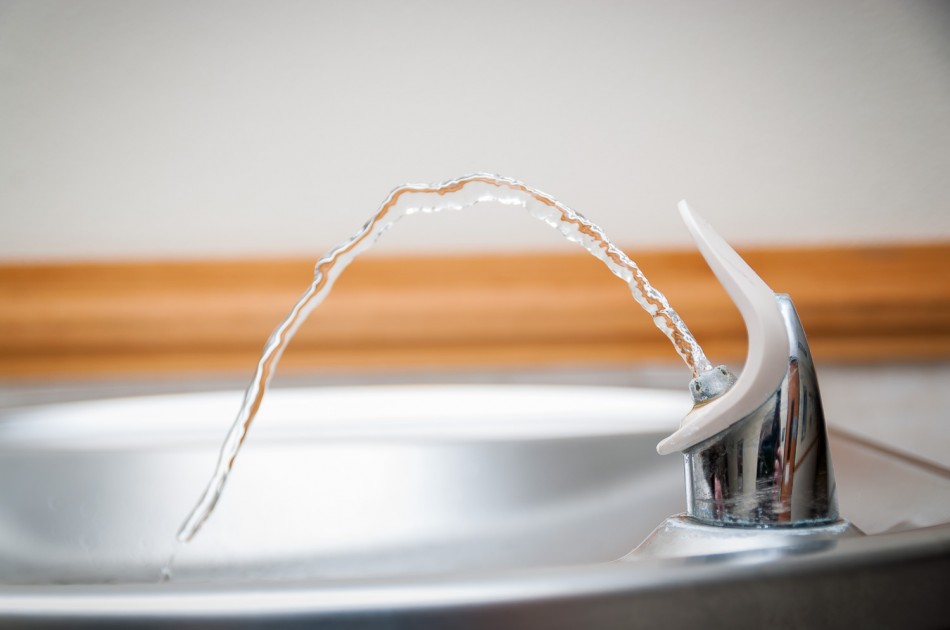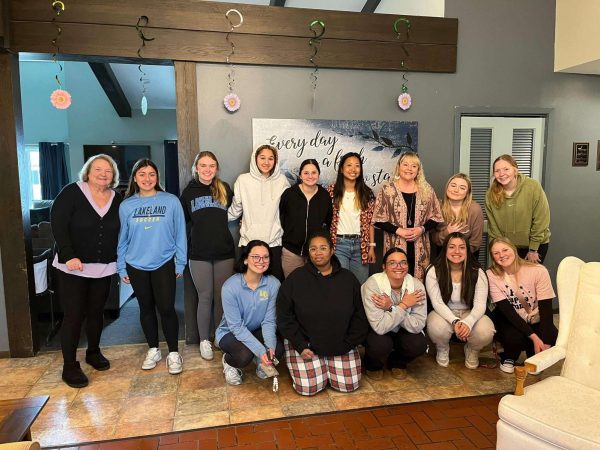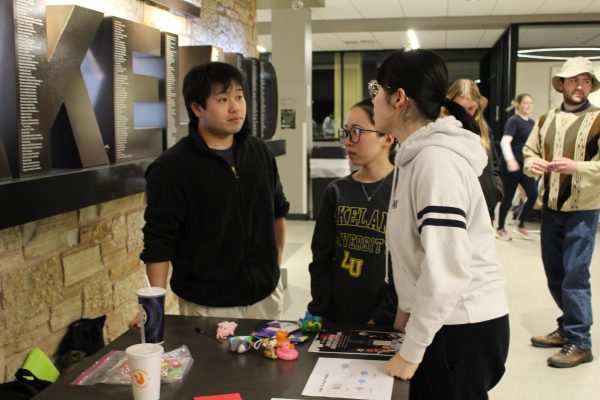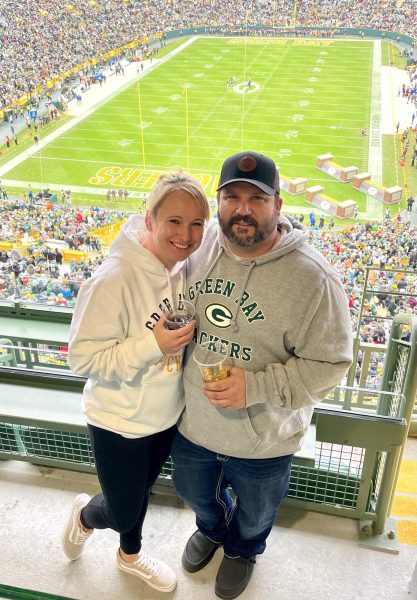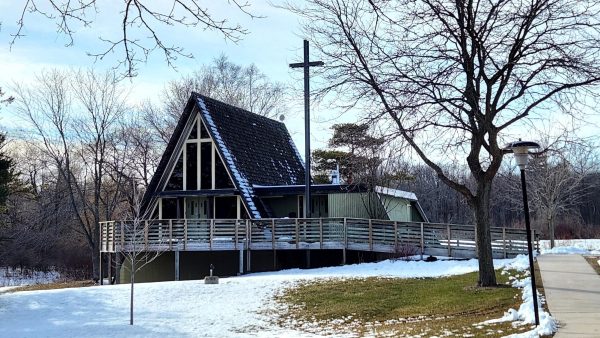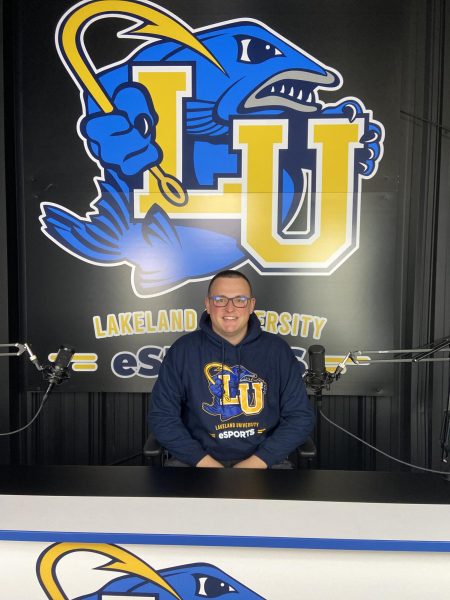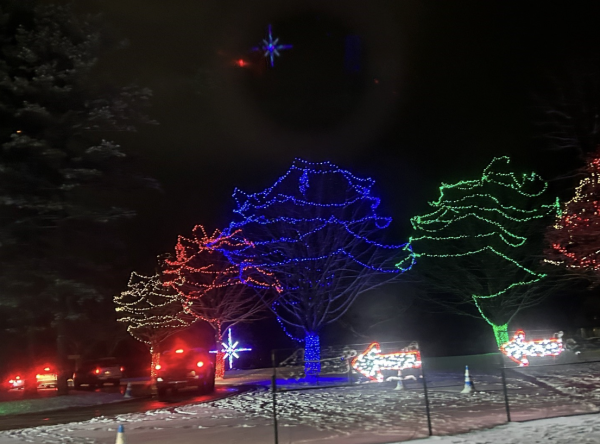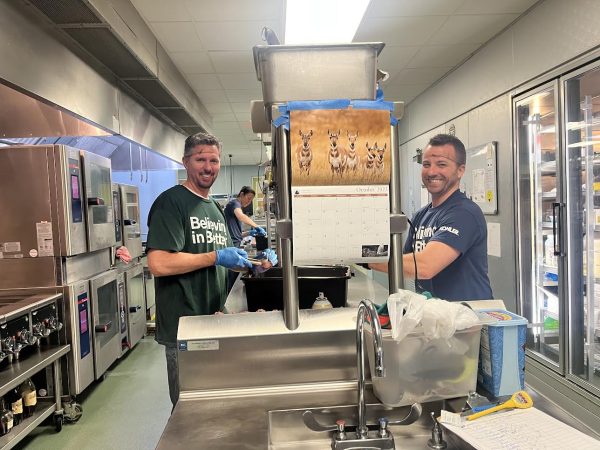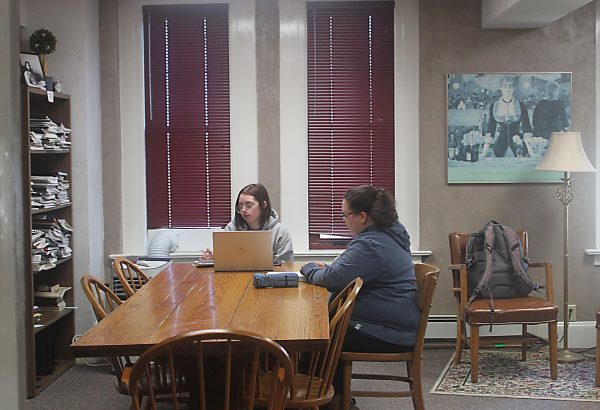Haen explains water main breaks
January 29, 2015
On Nov. 25 and Dec. 1, Lakeland College experienced two water main breaks on campus that resulted in boil/bottle water advisories and water shutdowns.
According to Richard Haen, senior director of facilities management and security, the first break on Nov. 25 was due to old pipes busting. The pipes were repaired, but many old pipes still run under the campus. These pipes are originally from the 1950s. Much of the piping under North Drive was replaced 12 years ago, but many old pipes still need to be replaced.
“We are doing some long range planning to replace the pipes,” Haen said. “It is not cheap, but we also understand what the cost is if we keep having breaks like this.”
The second break was caused by a pipe break in the tunnels underneath the library. Water from the broken pipe leaked into the steam distribution system. Over a couple hours, cold water sprayed onto the hot steam pipes, causing the break. By the time the steam was noticed and the crew could get safely down the tunnel to inspect the pipes, it was already too late.
“The steam tunnel is all confined space entry, so we do not just go rushing in,” Haen said. “We have to take safety precautions to protect our staff, as well as contractors, going in there.”
Lakeland is required to get a permit from the Department of Natural Resources (DNR) to pump water out of the ground. Part of this permit states that if the system drops below 20 pounds per square inch (psi), Lakeland goes under what the DNR calls a boil/bottle water advisory until the water can be tested.
When a boil/bottle water advisory is issued, the DNR requires two samples to be tested for Coliform bacteria. Coliform bacteria are an indicator for E. coli and Cryptosporidium, which are harder to detect.
“Typically, if the first one comes back negative for Coliform, we take a second sample,” Haen said. “If that also comes back negative, we can release the boil/bottle water advisory. Given the circumstances with the last two breaks being over the holidays, and our relationship that we have with the DNR demonstrating that we do safe practices and maintenance, they allowed us to just do the first set of tests. They came back negative, and we were able to take the boil/bottle advisory off.”
Water samples are also regularly sent in for testing every month to ensure that Lakeland’s water is clean and safe to use. Additionally, Chlorination tests are conducted two times a week.
According to Haen, the common misconception is that the water is unsafe during a boil/bottle water advisory. The advisories go into effect when the system loses pressure or during a water main break. Until the tests are conducted, the school has to post the warnings. If Lakeland ever failed to do this, then it could lose the permit that allows it to operate the water system.
“I would have no problem drinking the water, even while (there is a) boil/bottle water advisory,” Haen said. “I know what we do at the reservoir before it goes out into the system, so I know the water is safe to drink.”

